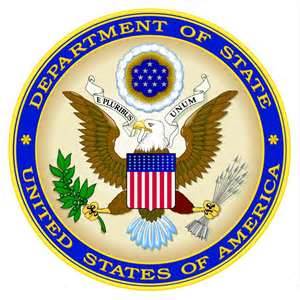U.S.-SRI LANKA RELATIONS
Relations between the United States and Sri Lanka are based on mutual interests and a shared commitment to the ideals of democratic governance. U.S. policy toward Sri Lanka is characterized by respect for its independence, sovereignty, and moderate nonaligned foreign policy; support for the country’s unity, territorial integrity, and democratic institutions; and encouragement of its social and economic development. The United States is a strong supporter of ethnic reconciliation in Sri Lanka following the 2009 end of decades of civil conflict.
U.S. Assistance to Sri Lanka
U.S. assistance has totaled more than $2 billion since Sri Lanka’s independence in 1948. Through the U.S. Agency for International Development (USAID), the U.S. has contributed to Sri Lanka’s economic growth with projects designed to reduce unemployment, improve housing, develop the Colombo Stock Exchange, modernize the judicial system, and improve competitiveness. The United States provided nearly $20 million to support the post-conflict humanitarian situation in Sri Lanka in FY 2011. The International Broadcast Bureau (IBB) operates a radio-transmitting station in Sri Lanka. U.S. Armed Forces maintain a limited military-to-military relationship with the Sri Lanka defense establishment. U.S. also provides technical assistance/training opportunities to Sri Lanka in many areas including biotechnology, intellectual property rights protection, cyber security.
Bilateral Economic Relations
For 2011, Sri Lanka’s exports (mainly apparel, tea, rubber, gems and jewelry) were estimated at $10.6 billion, and imports (mainly oil, textiles, food, and machinery) were estimated at $20.3 billion. Exports to the United States, Sri Lanka’s most important single-country market, were estimated at $2.09 billion for 2011, or 20% of total exports. The United States is Sri Lanka’s second-biggest market for garments, taking almost 40% of total garment exports. United States exports to Sri Lanka were estimated at $302 million for 2011, consisting primarily of wheat, aircraft and parts, machinery and mechanical appliances, plastics, and medical and scientific equipment, Sri Lanka’s Membership in International Organizations
Sri Lanka traditionally follows a nonaligned foreign policy. It participates in multilateral diplomacy, particularly at the United Nations, where it seeks to promote sovereignty, independence, and development in the developing world. Sri Lanka and the United States belong to a number of the same international organizations, including the UN, World Bank, and International Monetary Fund.
Bilateral Representation
The U.S. Ambassador to Sri Lanka is Michele J. Sison; other principal embassy officials are listed in the Department’s Key Officers List.
Sri Lanka maintains an embassy in the United States at 2148 Wyoming Avenue NW, Washington, DC 20008 (tel. 202-483-4025).
More information about Sri Lanka is available from the Department of State and other sources, some of which are listed here:
Department of State Sri Lanka Country Page
Department of State Key Officers List
CIA World Factbook Sri Lanka Page
U.S. Embassy: Sri Lanka
USAID Sri Lanka Page
History of U.S. Relations With Sri Lanka
Human Rights Reports
International Religious Freedom Reports
Trafficking in Persons Reports
Narcotics Control Reports
Investment Climate Statements
Office of the U.S. Trade Representative Countries Page
U.S. Census Bureau Foreign Trade Statistics
Export.gov International Offices Page
Library of Congress Country Studies
Travel and Business Information

It is generally accepted among the expats that 2nd time winning of Obama is primarily because of the Tamils for Obama support and finances. Will the Tamils In USA SUPPORT THE CAMPAIGN FOR CHANGE IN THE ISSUE OF GUNS?
[…] sangam.org […]